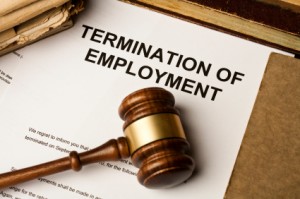The Impact of Employment Releases on Qui Tam Cases
 Whistleblowers often run into this situation: they’ve done the right thing to report suspicious conduct up the company’s chain of command only to be rewarded by being told that their services are no longer needed. While they collect their belongings, the company offers a lump sum of money in exchange for them signing a broad release of all claims that the former employee could one day bring against the company. The frazzled former employee tempted by the money often signs the agreement.
Whistleblowers often run into this situation: they’ve done the right thing to report suspicious conduct up the company’s chain of command only to be rewarded by being told that their services are no longer needed. While they collect their belongings, the company offers a lump sum of money in exchange for them signing a broad release of all claims that the former employee could one day bring against the company. The frazzled former employee tempted by the money often signs the agreement.
In the days or weeks that follow, the employee may figure out that the suspicious conduct they reported could have been the basis of a False Claims Act qui tam lawsuit and tries to file a case. One of the first hurdle the employee will need to clear is to get around the broad release of claims that they signed on their way out the door.
As with most things in life, timing is everything.
Releases signed after a case is filed.
The single biggest factor that determines whether a whistleblower case is still viable despite the existence of a broad release is when the release is signed. If it’s after the case is on file, then generally speaking, the case is found to not be released. The rationale is that once a qui tam case has been started, the False Claims Act provides that it can only be dismissed with permission of the government and the court — not by a release signed by the whistleblower. 31 U.S.C. 3730(b)(1); see also U.S. ex rel. Ritchie v. Lockheed Martin Corp., 558 F.3d 1161, 1168 (10th Cir.2009)(“[T]he statute only governs the enforceability of settlement agreements made after the filing of a qui tam claim.”). This rationale holds true no matter how broad the release is worded.
Releases signed before a case is filed.
That said, if the whistleblower signs the release on the way out the door and then files a case, he or she could be in trouble. The False Claims Act statute does not provide specific guidance on pre-filing releases and the United States Supreme Court has yet to weigh in on this issue in the False Claims Act context. The Supreme Court has provided guidance as to how releases impact cases generally, holding that “a promise is unenforceable if the interest in its enforcement is outweighed in the circumstances by a public policy harmed by enforcement of the agreement.” Town of Newton v. Rumery, 480 U.S. 386, 392 (1987) This so-called “Rumery test,” is a balancing test to ensure public policy is not jeopardized by enforcement of any contract or agreement.
Building on the Rumery test, federal courts generally now agree that “pre-filing releases bar subsequent qui tam claims if (1) the release can be fairly interpreted to encompass qui tam claims and (2) public policy does not otherwise outweigh enforcement of the release.” U.S. ex rel. Nowak v. Medtronic, Inc., 806 F. Supp. 2d 310, 336 (D. Mass. 2011). The second prong is essentially the Rumery balancing test and has led to what has been called the “government knowledge exception,” which has been explained very concisely:
When the government is unaware of potential FCA claims, the public interest favoring the use of qui tam suits to supplement federal enforcement weighs against enforcing pre-filing releases. But when the government is aware of the claims prior to suit having been filed, public policies supporting the private settlement of suits heavily favor enforcement of a pre-filing release.
U.S. ex rel. Radcliffe v. Perdue Pharma., L.P., 600 F.3d 319, 332 (4th Cir.2010).
What does it all mean?
In practice, this means that whether a pre-filing release will bar a whistleblower case depends on whether the government would have had knowledge of the fraud if the case was not filed. This is a difficult evaluation to make in any case. As a result, a very careful fact-specific evaluation needs to be done prior to filing a qui tam case, so it is very important that a whistleblower immediately tell his or her lawyer about the existence of any release, or about any pending release that is under consideration.


